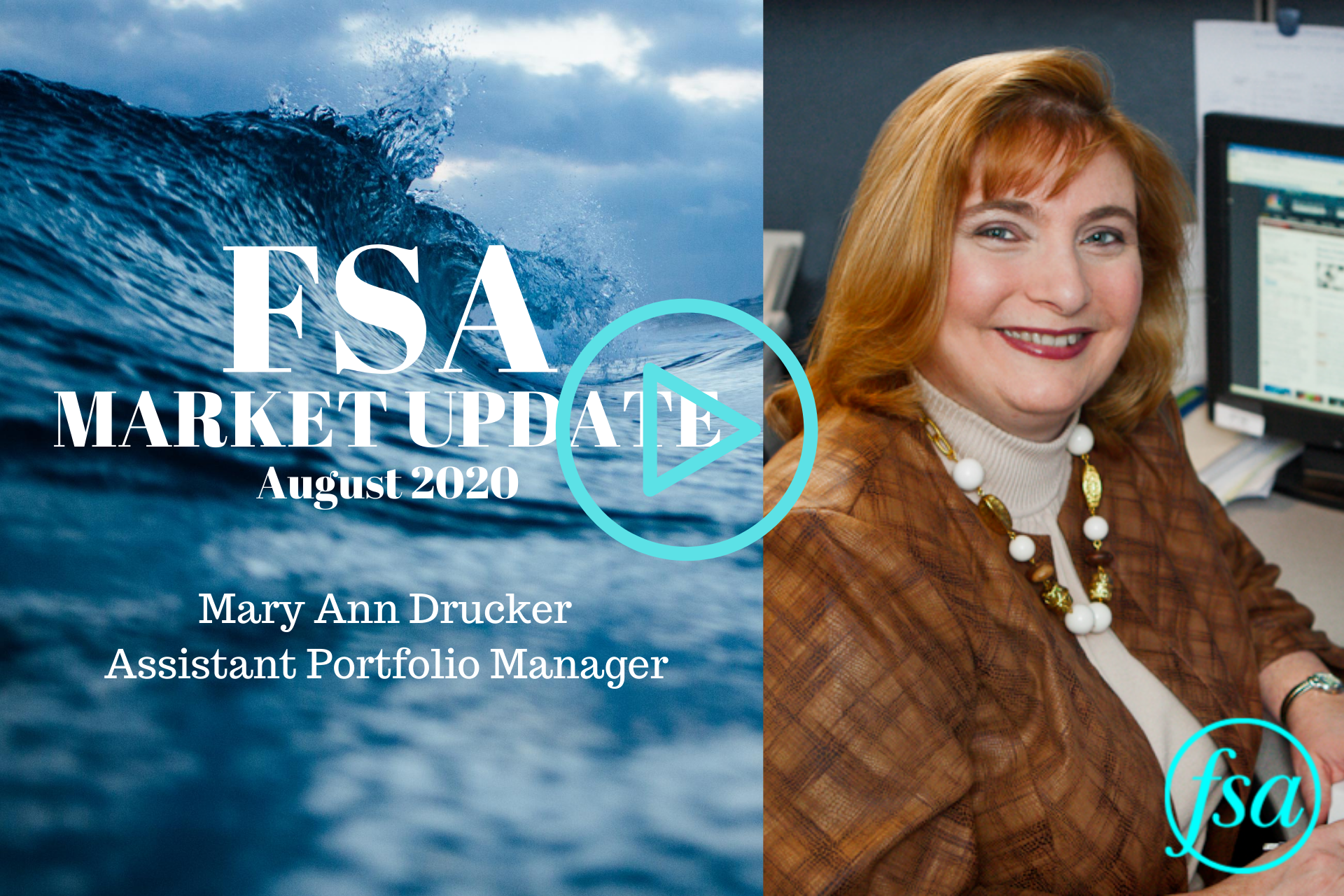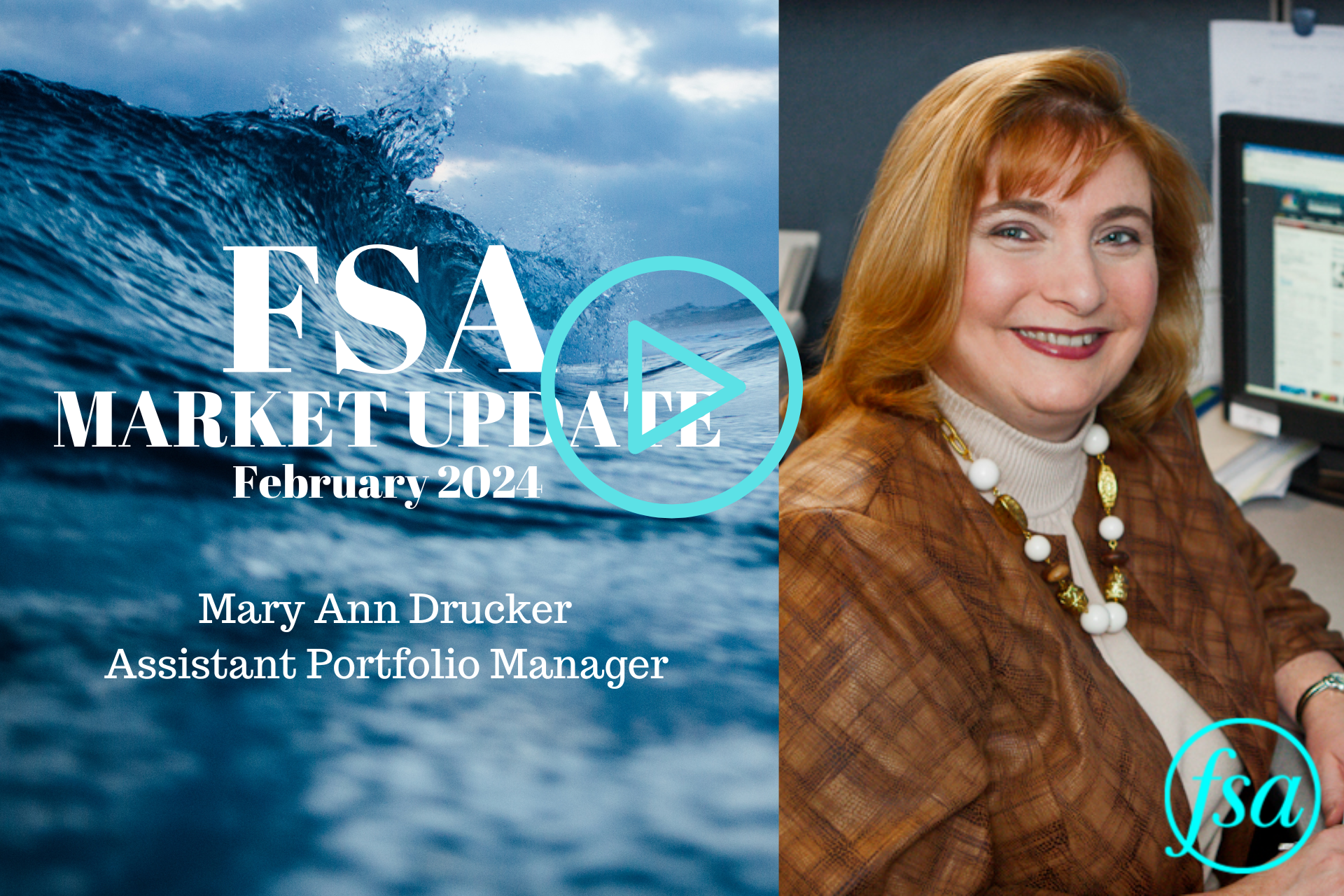Mary Ann Drucker, Assistant Portfolio Manager, discusses the Federal Reserves’ involvement since the COVID-19 pandemic began.
August Video Market Update Transcript
Hello. I’m Mary Ann Drucker here with our video market update for August 2020. When the country was in the throes of economic collapse back in March, the Federal Reserve made a very important announcement. It said that it was establishing liquidity facilities whereby the Fed would step in and buy securities. Since then, these facilities have expanded to include the purchase of treasuries, individual corporate bonds, municipal securities, mortgage backed securities, and even bond ETFs. So what’s been the reason behind this buying spree in the bond market?
Earlier in the year, when the markets were in free fall, liquidity in the credit markets dried up leaving companies, small businesses, and consumers unable to borrow in the sudden economic downturn brought on by COVID-19. By buying securities, the Fed injected cash into the banking system, enabling the credit markets to open back up and begin functioning properly again. This type of Fed intervention by buying securities isn’t new. We saw this back during the 2008 financial crisis, but as this chart of the Fed’s balance sheet illustrates, the Fed’s response to this year’s crisis has far exceeded the response from the great recession.
And the Fed isn’t the only central bank buying securities, but it has yet to go into territory that other central banks have, and that is the stock market. According to research by Charles Schwab, the Bank of Japan has been buying equity ETFs since 2010. The bank stepped up its purchases this year and now owns more than 5% of Japan’s stock market capitalization. The government of China is another buyer, has been another buyer of equities.
So why doesn’t the Federal Reserve buy stocks? Well, technically it’s not allowed. The 1913 Federal Reserve Act prohibits the Fed from buying corporate assets. Some argue that the Fed has overstepped its authority this year by buying corporate bonds, to which the Fed has responded it was responding to unusual circumstances. Some might even say dire circumstances. So aside from the legality of whether the Fed can actually buy stocks, it would be a pretty slippery slope to go down that road. If it did, the Fed would run the risk of incurring market losses, or it could be perceived as directly manipulating markets. So far, the Fed has dismissed the need to even go down that path.
In closing, what might have market participants concerned about the Fed’s involvement in the bond markets? Some are concerned that the massive expansion of the Fed’s balance sheet will lead to inflation while others argue that the Fed can control inflation by adjusting interest rates. Also, the Fed’s liquidity facilities are due to expire at the end of September. According to Ned Davis Research, the Fed could either extend these programs if it deems necessary, or it might just let these programs expire. Whatever the Fed does, if it’s unexpected, that could lead to heightened volatility in the fall.
Well, that’s it for this video market update. If you have any questions or comments, please don’t hesitate to call or email us. Until next time, thank you for watching.
FSA’s current written Disclosure Brochure and Privacy Notice discussing our current advisory services and fees is available at www.FSAinvest.com/disclosures or by calling 301-949-7300.




